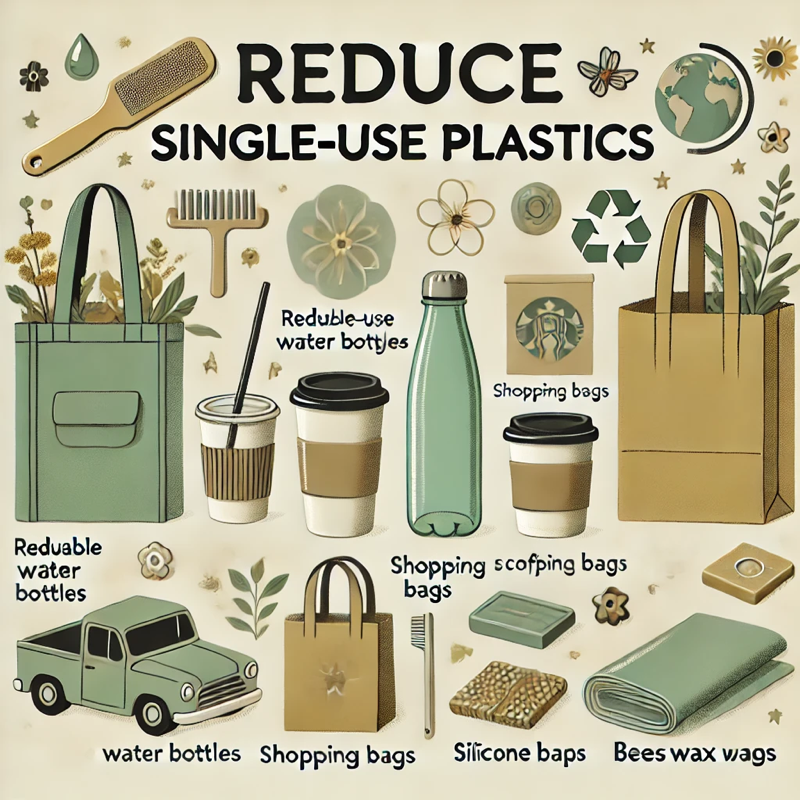How to Reduce Single-Use Plastics in Your Life: A Guide
Reducing single-use plastics is a powerful way to minimize waste and protect our planet, particularly ocean ecosystems. Plastics take hundreds of years to break down, and during that time, they release toxic microplastics, harming wildlife and polluting water sources. Here’s a deeper look into actionable steps you can take and their positive impact.
Why Reduce Single-Use Plastics?
Every year, billions of single-use plastic items—like bags, bottles, and food wraps—end up in oceans and landfills. These plastics break down into microplastics, which harm marine life and end up in our food and water. Reducing our reliance on single-use plastics is essential for preserving natural ecosystems and reducing the toxic burden on wildlife and human health.
Simple Steps to Reduce Single-Use Plastics
1. Switch to Reusable Water Bottles
Plastic water bottles are one of the most common single-use items, with millions discarded each day. Investing in a durable, stainless steel or glass bottle allows you to refill throughout the day without contributing to plastic waste.
Tip: Choose a bottle with an insulating feature to keep drinks cold or hot, encouraging you to carry it year-round.
2. Bring Your Own Shopping Bag
Most plastic bags are used for an average of 12 minutes, but they take up to 1,000 years to decompose. By carrying reusable bags made from cloth or recycled materials, you reduce the demand for plastic bags and help prevent them from polluting our land and water.
Tip: Keep a few reusable bags in your car, purse, or near your door so you never forget them when you head out.
3. Opt for Reusable Coffee Cups
If you’re a coffee lover, using a reusable cup is an easy way to cut down on single-use cups, which often contain plastic linings that aren’t recyclable. Many cafes even offer a discount for bringing your own cup.
Tip: Find a cup that fits your style, whether it’s stainless steel, glass, or bamboo, and make it part of your daily routine.
4. Replace Plastic Wrap with Beeswax Wraps or Silicone Bags
Plastic wraps are single-use and often end up in the trash after one use. Beeswax wraps are reusable, biodegradable alternatives that can be used to wrap food or cover containers. Silicone bags are another great option for storing food, reducing the need for single-use plastic bags.
Tip: If beeswax wraps seem intimidating, start with just a few for smaller items, then work up to using them for larger needs.
Impact of Reducing Single-Use Plastics
Switching to reusable alternatives significantly reduces the amount of plastic waste that enters the environment. Less plastic means fewer toxic chemicals in our soil and water, and cleaner, safer habitats for marine life. On an individual level, these changes add up: each reusable item replaces potentially hundreds or thousands of plastic items over its lifespan, leading to a substantial decrease in pollution and landfill waste.
Final Thoughts
Reducing single-use plastics is about making mindful choices. Start small—choose one or two of these practices and build from there. Each change you make, however small, contributes to a healthier planet for future generations.
Village Five Recommendations
Switch to Reusable Water Bottles
Bring Your Own Shopping Bag
Opt for Reusable Coffee Cups
Replace Plastic Wrap with Beeswax Wraps or Silicone Bags






